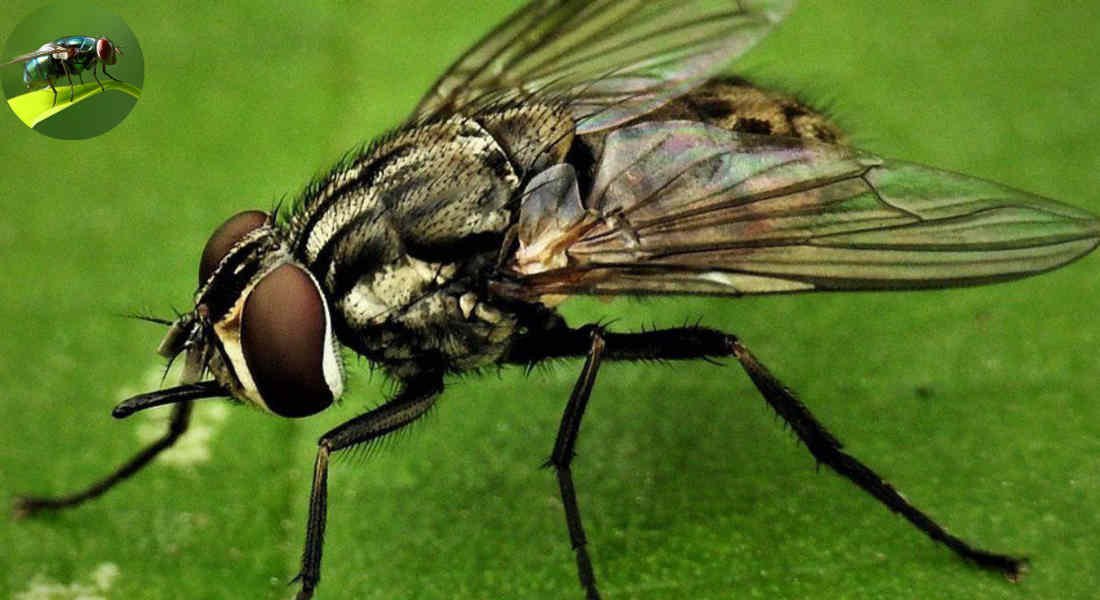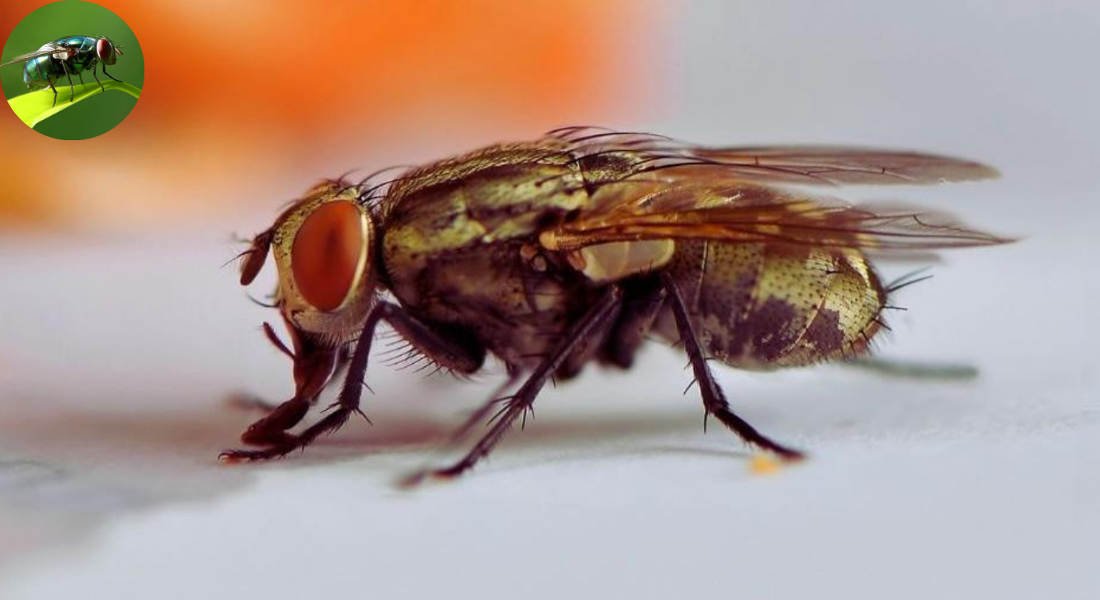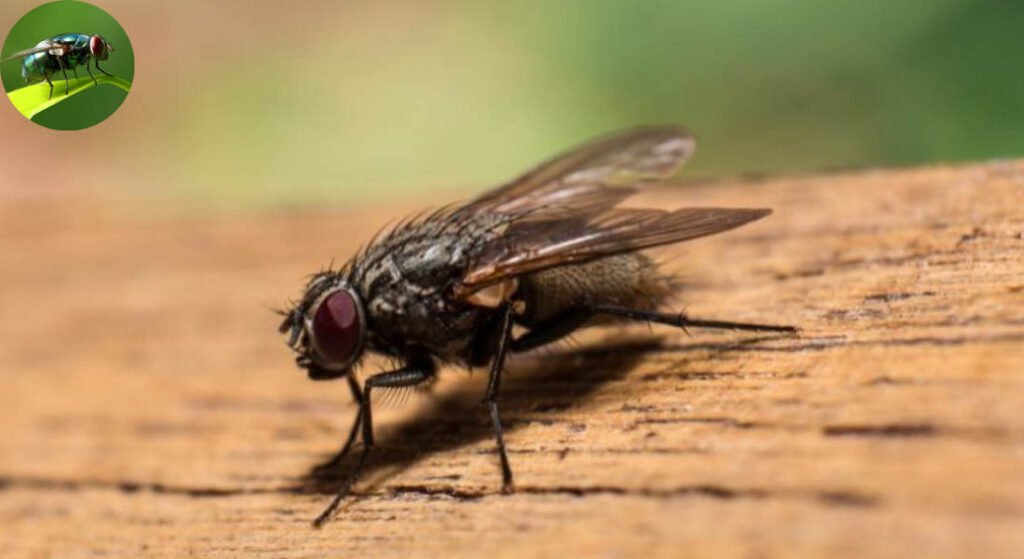House flies are more than just a nuisance; some species can bite, causing painful welts and potential allergic reactions. Preventing house flies from biting involves a combination of sanitation, exclusion, and protective measures to reduce their presence and avoid contact. Effective prevention starts with eliminating breeding sites by removing decaying organic matter, garbage, and animal feces around your home, as these attract flies to lay eggs. Securing your living space with tight-fitting screens on windows and doors and sealing any gaps prevents flies from entering indoors. When outdoors, wearing protective clothing treated with insect repellents like DEET or permethrin and avoiding areas with standing water or dense vegetation where flies breed can significantly reduce the risk of bites. Additionally, using fly traps, insecticides, and natural repellents can help manage fly populations and minimize biting incidents. Combining these strategies provides the best defence against house flies and their bites.
The Dangers of House Fly Bites
House flies may not bite in the traditional sense, but their presence poses significant health risks. They are notorious for carrying disease-causing bacteria on their tiny bodies. When they land on food or surfaces, they can easily transfer these harmful pathogens.
The real danger lies in what house flies can spread. They often thrive in unsanitary conditions and feed on decaying organic matter. This behaviour increases the likelihood of transmitting illnesses, such as food poisoning or gastrointestinal infections when they invade your kitchen.
Even more concerning is that some people experience allergic reactions to the saliva or feces of flies. While rare, these reactions can lead to itching and inflammation around bites that never actually happened—just a reminder of how unwelcome guests might still disrupt your peace at home.
Keeping an eye out for these pests is essential for maintaining a healthy living environment. Awareness is key to preventing potential issues down the line.
Understanding the Behavior of House Flies
House flies are fascinating creatures with intricate behaviours. They thrive in environments rich in organic matter, which serves as both food and a breeding ground.
These insects are attracted to decaying matter, such as rotting fruits and vegetables, garbage, and feces. Once they find a suitable spot, they quickly lay their eggs. Within days, larvae hatch and continue the cycle.
Flies have an incredible ability to sense smells from great distances. Their keen olfactory senses guide them toward potential food sources or suitable places for laying eggs.
Interestingly, house flies don’t bite humans like some other pests do; instead, they feed by regurgitating digestive juices onto their food before consuming it. This behaviour can spread pathogens.
Their rapid reproductive rate means that even a few flies can quickly develop into a large infestation if not properly managed. Understanding these behaviours helps in developing effective prevention strategies against them.
You may also read (how to prevent house moths from biting you).
Identifying Common Household Attractants for Flies
House flies are opportunistic feeders drawn to a variety of household items. Food remnants are their primary attraction. A crumb on the counter or spills left unattended can create an inviting feast.
They’re also attracted to organic waste. Trash bins that aren’t tightly sealed become a buffet for these pests. Even compost piles, if not appropriately managed, can lure them in droves.
Flies thrive in humid environments, such as kitchens and bathrooms, where leaks can often go unnoticed. The presence of standing water can signal a welcome environment for breeding.
Ripe fruits on countertops are irresistible to house flies. Keeping produce stored away or promptly consumed helps reduce the risk of spoilage and invasion.
Understanding these common attractants is key to keeping your home fly-free and comfortable throughout the year.
Natural and Chemical Methods to Repel House Flies
Natural methods to repel house flies often involve essential oils. Scents like eucalyptus, lavender, and peppermint are effective deterrents. Mixing these oils with water in a spray bottle can create a simple fly repellent.
Flies dislike the strong smell of apple cider vinegar. A bowl of it placed on your counter can help keep them at bay while attracting them away from other areas.
For those who prefer chemical solutions, commercial insect sprays are readily available. Look for ones specifically designed for indoor use, ensuring they target flies without harming pets or children.
Using insect growth regulators (IGRs) can disrupt the life cycle of house flies without immediately killing the adults. This approach reduces their population over time by preventing eggs from developing into mature flies.
Consider integrating both natural and chemical strategies for a comprehensive defence against pesky houseflies in your home environment.
You may also read (do indoor plants improve your homes smell).
Keeping Your Home Clean and Tidy
A tidy home is your first line of defence against house flies. These pests are attracted to clutter and mess, as it often means easy access to food sources.
Regularly cleaning surfaces helps eliminate crumbs and spills that might go unnoticed. Wipe down countertops daily, especially after cooking or eating, to keep them clean.
Don’t forget about floors; vacuuming can remove not just dirt but also potential fly attractants hidden in carpet fibres or under furniture.
Taking out the trash should also happen frequently,—especially if you have organic waste, such as fruit peels and leftovers, lying around. Seal garbage bags tightly to avoid tempting flies with enticing smells.
Remember, even small items like pet bowls can be a magnet for these nuisances if left unwashed. Keeping your home organized makes it less inviting for unwanted guests while ensuring a healthier living space for you and your family.
DIY Traps and Baits for House Flies
When it comes to combating house flies, DIY traps and baits can be an effective solution. Creating your traps allows you to utilise items you already have at home while minimising the need for chemical repellents.
One popular method is using a simple vinegar trap. Fill a bowl with apple cider vinegar and cover it tightly with plastic wrap. Poke small holes in the wrap; this will attract flies, which will enter but struggle to escape.
The sweet scent draws the flies in, where they become trapped inside. You can also create sticky traps by applying honey or syrup onto yellow paper strips hung around your home.
For those seeking a more advanced solution, consider mixing soap with water in a spray bottle as an insecticide that targets house flies without harsh chemicals. A few drops of dish soap mixed into water create a surface tension that prevents them from escaping when sprayed directly.
Using these methods not only helps keep your home fly-free but also provides an engaging way to tackle pests naturally and effectively. By incorporating these strategies along with maintaining cleanliness, you’ll find yourself much less bothered by pesky house flies—and perhaps enjoy some peace of mind knowing you’re doing so without unnecessary chemicals!
You may also read (do ticks really come inside the house).

